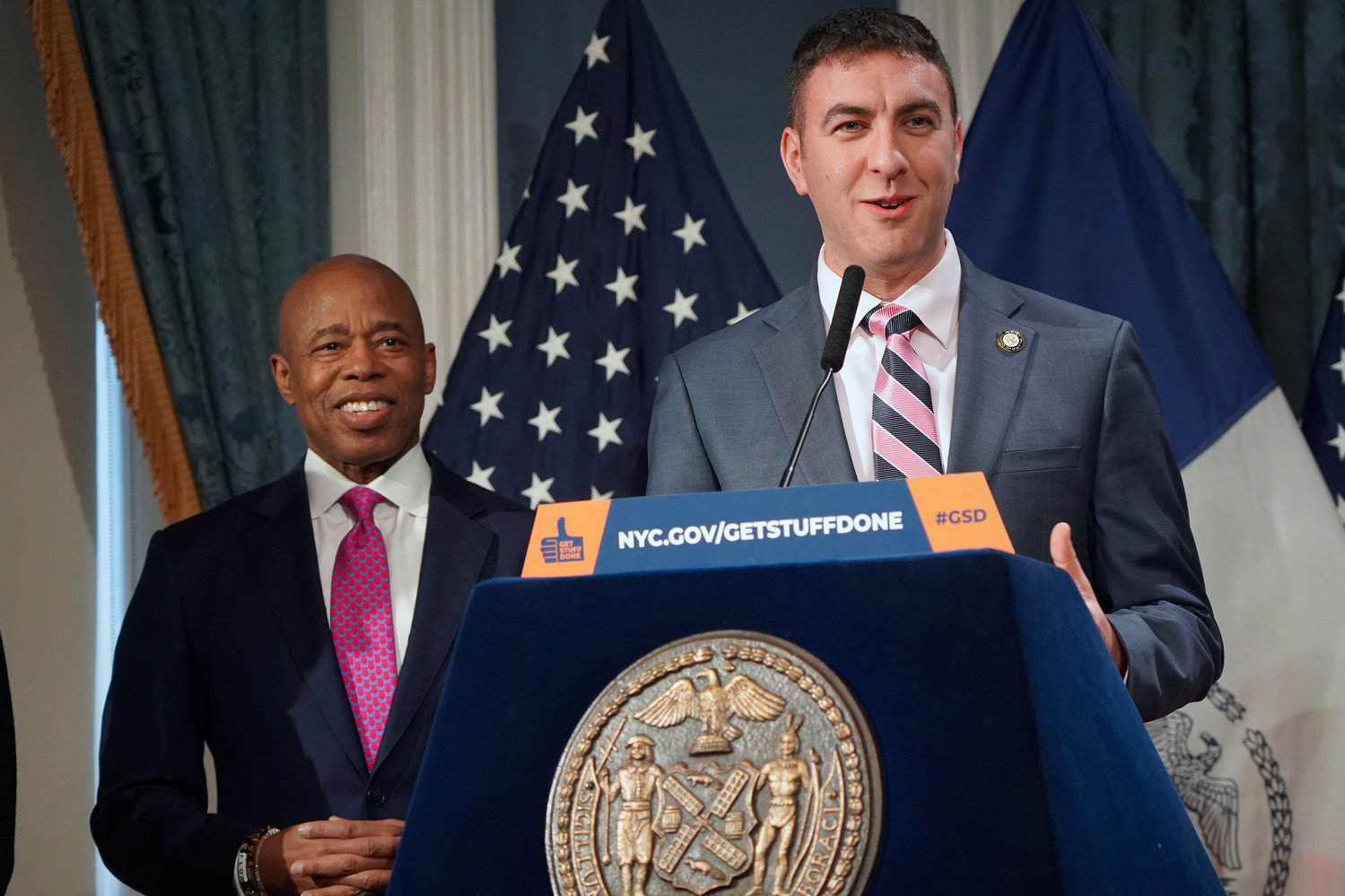Easier now for students with disabilities
Educators aim to connect institutions with students through transition legislation
Students with disabilities depend on their Individualized Education Program to receive the help they need from K-12. But in a blink of an eye after high school graduation — that help is all gone.
As a former special education teacher, Councilman Eric Dinowitz proposed a bill last year that would develop and manage the transition for students with disabilities to CUNY. The bill was passed by the council on Jan. 19 and signed into law by Mayor Eric Adams about two weeks later.
“For too long, our students with disabilities have struggled in a system that hasn’t been able to fully meet them where they are,” said Mayor Adams. “Being able to succeed while attending a higher education institution involves more than just being able to attend classes and studying — it means having the available support and accommodation to succeed. Intro 660-A will help provide that support, making it easier for students with disabilities to enter higher learning institutions.”
The law is set to become a game changer for students with disabilities.
Students with disabilities often face obstacles to getting the support they need in college, while in city schools, IEP’s are required for students to meet annually at a minimum to create programming.
The outcome can be a smaller classroom, extra time for test taking and more time to challenge a student’s learning disability who generally needs extra help.
“When they get to our campus, or any student from high school gets to college, the laws completely change and when they’re in K through 12, they’re protected under different laws,” said Gabriella Kohler, the director of student disability services at Lehman College.
In college — the responsibility is shifted onto the students with often no direction. However, some educators can guide their students to find the disabilities office in college before they enroll.
The educator can be their college counselor, transition coordinator or teacher to take time off their teaching duties so they can be the transition coordinator. Some schools provide more hours for discussion with students than others.
“We shouldn’t be reliant on a system that has no systemic solutions,” Dinowitz said. “We shouldn’t have a system where it’s just completely dependent on what time a teacher is given to do tasks or what resources a principal provides. As a $30 billion system, we should be systemically supporting our students with disabilities.”
Aurora Foster-Whyte, a Lehman junior and health administration major, thought her transition was more straightforward than others. Being a student with disabilities at Mount Vernon High School, she was already registered in the disability office and said the transition to Lehman was smooth.
Lehman “trains you like in Mount Vernon to advocate for yourself,” Foster-Whyte said.
However, testimony in last year’s hearing showed a somewhat different experience.
Juliet Eisenstein, the staff attorney of Advocate for Children of New York an organization that protects children for school-based discrimination due to disability, race, language or more, said she viewed the difficulties the transition has on students. She calls this student “Gabby.”
“Gabby and her parent worked closely with Gabby’s IEP team to make sure she received all the services and accommodations she needed throughout high school,” Eisenstein said.
Gabby was diagnosed with several learning disabilities and relied heavily on being dependent. Eventually, Gabby graduated with a regent diploma and began attending Bronx Community College. However, she didn’t know where to turn to for help because the community college did not have the IEP team.
“While Gabby has now found an academic tutor, she is still struggling to advocate for extended time and other accommodations that she needs to be successful in her classes,” Eisenstein said.
The local law would allow students like Gabby to already have those accommodations in place through the Mayor’s Office of People with Disabilities. The office will create programs and provide students with student advocates to access related support.
“The Bronx will benefit the greatest,” said former NYC public school chancellor Meisha Porter. “We have the largest number of people with disabilities in the borough.”
District 75 provides highly specialized instructional support for students and has more school sites in the Bronx than in the neighboring boroughs, and last year there were more than 1 million students in New York City school districts and 20.6 percent were students with disabilities.
To zoom out of the legislation portion of the bill, the Mayor’s Office for People with Disabilities is a small office that helps all people with disabilities. The councilman said now the office will help more people.
Kohler told The Riverdale Press her perspective and her experience working with the liaison between the government and disability community called “Leads” that it helped prepare college students for employment.
Porter told The Press last week she hosted a roundtable with the federal department of education and this bill came up often in their conversation with city and state educators. They discussed the importance of providing transition support to students with disabilities entering college.
“The voice I bring to the table is building institutional relationships around this bill, Porter said. “How are we connecting the three institutions: public schools, the mayor’s office and CUNY? And ensuring and identifying those people in each of those agencies who should be talking as we build this transition process.”






